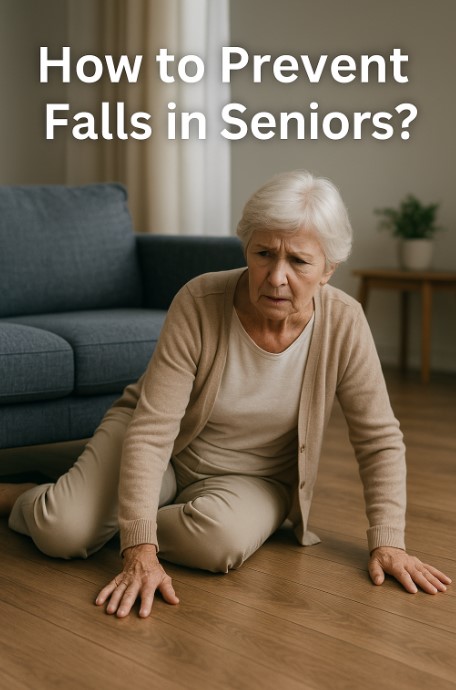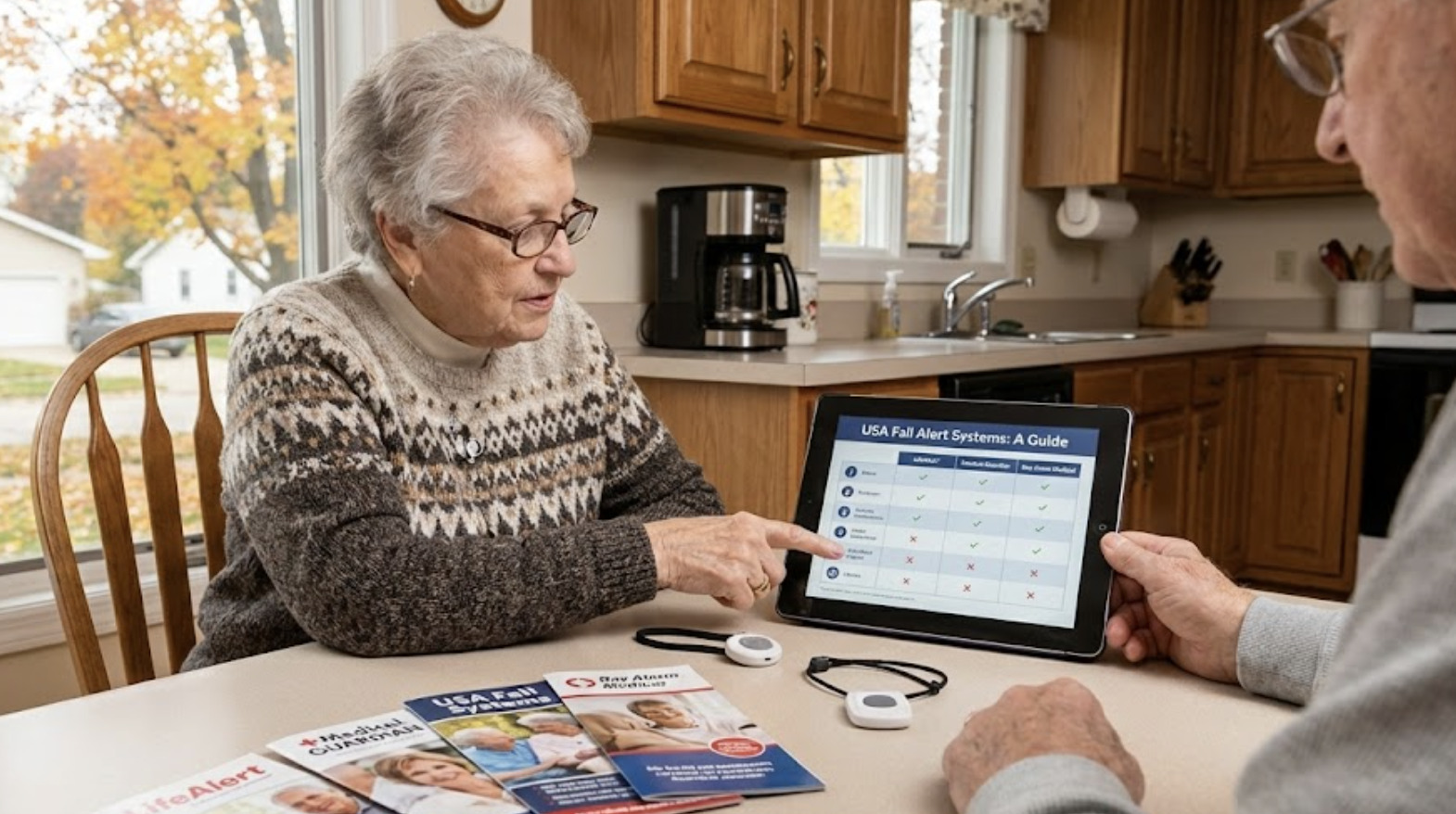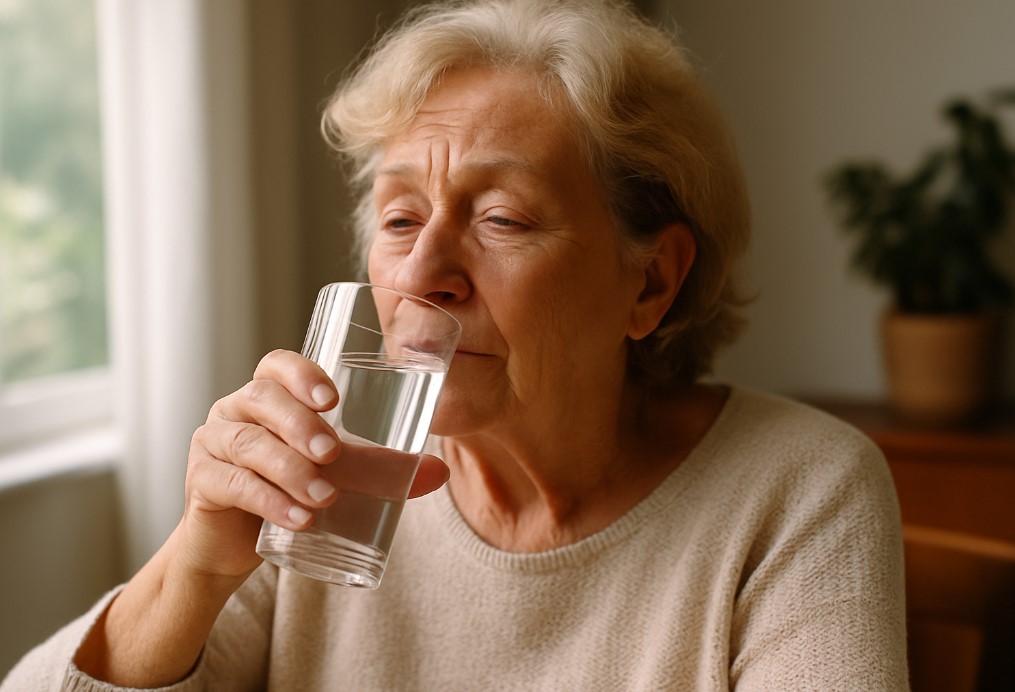Falls are one of the leading causes of injury among older adults, yet most are preventable.
According to the CDC, more than one in four adults aged 65 and older experiences a fall each year. The consequences can range from minor bruises to hip fractures or even life-threatening injuries. But staying active, making small home adjustments, and using smart safety devices can greatly reduce the risk.
With the right habits — and the help of technology like a Smart Watch for Seniors — seniors can remain independent and safe without fear of falling.
Why Falls Happen in Older Adults
Aging brings natural changes that affect balance, strength, and coordination. Over time, muscles weaken, reaction times slow, and eyesight or hearing may decline.
Other common causes include:
- Medical conditions such as diabetes, heart disease, neuropathy, or arthritis, which affect movement and stability.
- Low blood pressure when standing (orthostatic hypotension), which causes dizziness or faintness.
- Medication side effects, including confusion or drowsiness.
- Unsafe environments, like cluttered hallways, slippery rugs, or dim lighting.
- Improper footwear — loose slippers, high heels, or smooth soles.
Most falls don’t have a single cause — they result from several of these factors combined.

10 Proven Fall Prevention Tips for Seniors
1. Stay Physically Active
Exercise is one of the best ways to prevent falls in seniors.
Regular activity improves muscle strength, flexibility, and balance. Simple exercises like tai chi, yoga, or daily walks can lower fall risk by up to 25%. Even mild activities such as climbing stairs or light resistance training help maintain mobility and bone density.
2. Practice Balance and Strength Training
According to physical therapists, daily “sit-to-stand” exercises, leg raises, and gentle squats strengthen the legs and hips — key areas for stability.
If you’re new to exercise, consult a physical therapist to create a personalized routine.
3. Review Your Medications
Some medications, especially those for sleep, blood pressure, or anxiety, can cause dizziness or slower reaction times.
Bring all prescriptions, over-the-counter medicines, and supplements to your doctor for review. Adjusting doses or switching medications can make a significant difference in fall prevention.
4. Get Regular Vision and Hearing Checks
Even small changes in eyesight or hearing can throw off balance.
Replace old glasses, and ensure hearing aids fit properly. For outdoor activities, single-distance lenses are often safer than bifocals because they help detect curbs and uneven ground more easily.
5. Fall-Proof Your Home
More than half of all senior falls occur at home. A few adjustments can make a big difference:
- Remove loose rugs, cords, and clutter.
- Add grab bars near toilets and showers.
- Improve lighting in hallways and stairways.
- Install non-slip mats in the bathroom.
- Keep everyday items within easy reach to avoid climbing or stretching.
These simple steps can reduce home fall risk by more than 25%.
6. Wear Proper Footwear
Shoes should fit snugly, have rubber, non-slip soles, and low heels. Avoid flip-flops or socks on smooth floors. Proper shoes not only prevent falls but also help reduce joint pain and fatigue.
7. Use Assistive Devices and Smart Technology
If you feel unsteady, use a cane, walker, or other assistive devices.
Modern technology also provides reliable protection — for example, the Active Alert Smartwatch.
This Smart Watch for Seniors automatically detects falls and sends instant alerts to family members or emergency contacts. Unlike traditional pendants, it’s discreet, comfortable, and tracks daily activity — helping older adults stay active while staying protected.
8. Stand Up Slowly
When getting out of bed or rising from a chair, take a moment to steady yourself. Standing too quickly can cause a sudden drop in blood pressure and make you dizzy.
9. Get Enough Rest and Limit Alcohol
Fatigue and alcohol both affect coordination and judgment. Aim for 7–8 hours of sleep each night and moderate alcohol use to maintain balance and alertness.
10. Stay Connected
Isolation increases not only emotional stress but also physical risk. Keep a phone or smartwatch with you at all times, check in with friends or family daily, and consider devices with emergency response features — like fall detection or SOS alerts — to ensure help is always one tap away.

What to Do If You Fall
Even with precautions, falls can happen. If you do fall:
- Stay calm and take a few deep breaths.
- Check for pain or injury.
- If possible, crawl to a sturdy chair and use it to help yourself up slowly.
- If you’re injured or can’t move, call for help. If you’re alone, use your smartwatch or phone to contact someone immediately.
Wearing a Smart Watch for Seniors with Fall Detection ensures that even if you can’t reach your phone, help can be summoned automatically.
Strengthen Your Bones and Confidence
Strong bones can lessen injury severity.
Get enough calcium and vitamin D, quit smoking, and engage in light weight-bearing exercises like walking or resistance bands.
Equally important is building confidence: fear of falling can actually make falls more likely. Activities like tai chi and gentle yoga improve both balance and self-assurance.
Final Thoughts
Falls don’t have to be an inevitable part of aging. By staying active, maintaining your environment, and embracing smart safety technology, seniors can live confidently and independently.
A Smart Watch for Seniors, such as the Active Alert Smartwatch, combines fall detection, activity tracking, and emergency alerts — giving peace of mind to both seniors and their families.
Small steps and smart tools today can make a life-changing difference tomorrow.
FAQ: Preventing Falls in Seniors
1. What are the most common causes of falls in seniors?
Most falls are caused by a combination of factors such as poor balance, weak muscles, vision changes, unsafe footwear, and environmental hazards at home.
2. How can I prevent falls at home?
Remove loose rugs, improve lighting, install grab bars in bathrooms, and keep walkways clutter-free. Wearing proper shoes and using devices like the Active Alert Smartwatch also helps.
3. Are there exercises that help prevent falls?
Yes. Balance and strength training — such as tai chi, yoga, and sit-to-stand exercises — have been shown to reduce fall risk significantly.
4. What should I do if I fall and can’t get up?
Stay calm, avoid sudden movements, and use a nearby chair to help yourself up. If injured or alone, use your Smart Watch for Seniors with Fall Detection to call for help automatically.








